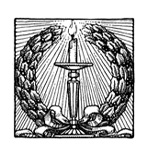
A Common Grief, Re-observed
OUGHT WE PRAY TO OR PRAY FOR OUR SON?
When my wife and I received the diagnosis that our unborn son had Trisomy 18, a chromosomal abnormality that often results in stillbirth or early death, we began praying for his miraculous healing and, if that was not God’s will, time enough to baptize him and for him to meet his siblings. But God had different plans for Bosco Joseph Paul, who was stillborn into our arms.
There are few more difficult pains to endure than the loss of one’s child. And yet, the grief of the Christian is radically different than that of the modern pagan, whose immanentist creed does not hold forth the promise of eternal life. Christian grief is quickened by hope.
Hence, when we named our son, we entrusted him to three patron saints: St. John Bosco, the great educator of boys; St. Joseph, the model father; and St. Paul, who knew what it meant to be a person “abnormally born.” Our hope was to join our desire to these saints and the whole Church for the salvation of our son’s soul.
In the hours, days, and weeks after Bosco’s passing, we were faced with a question. Do we pray for him or do we pray to him? Should we be praying for his salvation? Or should we be asking him to intercede for ours? These are questions to which the Catholic Church has not offered definitive answers.
You May Also Enjoy
A review of Unborn Human Life and Fundamental Rights: Leading Constitutional Cases Under Scrutiny, edited by Pilar Zambrano and William L. Saunders.
We need to re-think children — whose they are, why they exist, and whether anything else we can possibly choose is more important.
The former Democratic presidential nominee is no friend to women; she has been a brazen bully and an enabler of sexual assault. The press willingly disregarded a mountain of evidence on this.

